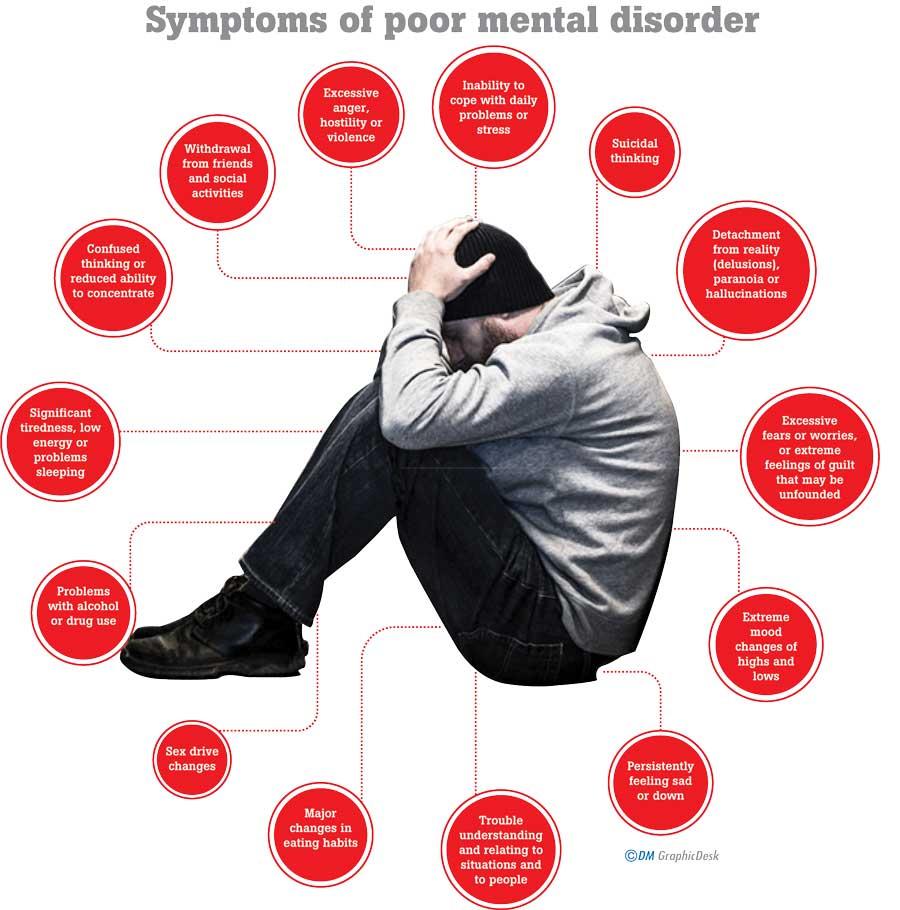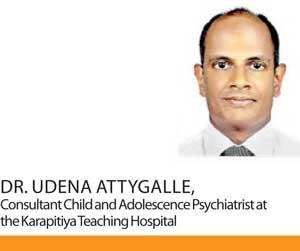Reply To:
Name - Reply Comment

While our genes and early relational environment effects how we respond to our environment, our environment in turn has an effect on what genes get activated in us
 Every year, the World Health Organisation (WHO) celebrates World Mental Health Day on October 10. This year’s theme highlights the need to prevent suicides; since every 40 seconds someone loses his or her life as a result of suicide. However, in today’s Health Capsule we are shifting our focus from suicide prevention, as we need to lay more emphasis on the need for sound mental health. Since World Mental Health Day was celebrated yesterday, it is only timely that we shed more light on the importance of having a good mental health for the overall well being of man. Speaking to Health Capsule, Dr. Udena Attygalle, Consultant Child and Adolescence Psychiatrist of the Karapitiya Teaching Hospital, Galle shared his views on how good mental health helps thrive in society while shedding more light on how to identify the signs of poor mental health that could deteriorate one’s quality of life.
Every year, the World Health Organisation (WHO) celebrates World Mental Health Day on October 10. This year’s theme highlights the need to prevent suicides; since every 40 seconds someone loses his or her life as a result of suicide. However, in today’s Health Capsule we are shifting our focus from suicide prevention, as we need to lay more emphasis on the need for sound mental health. Since World Mental Health Day was celebrated yesterday, it is only timely that we shed more light on the importance of having a good mental health for the overall well being of man. Speaking to Health Capsule, Dr. Udena Attygalle, Consultant Child and Adolescence Psychiatrist of the Karapitiya Teaching Hospital, Galle shared his views on how good mental health helps thrive in society while shedding more light on how to identify the signs of poor mental health that could deteriorate one’s quality of life.
While acknowledging the importance of mental health, Dr. Attygalle went on to explain that mental health should be recognised not only as the absence of mental health disorders as we understand them currently, but also as something that help us lead lives that are worthwhile. Noting that the WHO also recognises this in their definition, he further explained that mental health is defined as a state of well-being in which every individual realizes his or her own potential, can cope with the normal stresses of life, can work productively and fruitfully, and is able to make a contribution to her or his community. So, in a sense it is not jut merely survival that reflects good mental health but being able to thrive is also part of it.
The struggle with mental disorders
Noting that there are well defined mental health disorders, Dr. Attygalle stated that our understanding of the mind and brain is constantly evolving.
“While our genes and early relational environment effects how we respond to our environment, our environment in turn has an effect on what genes get activated in us. Thus, good mental health is in essence a product of ourselves and our environment interacting with each other. As such it is also something that is always changing. So, rather than thinking of it as sound mental health and the opposite, it would be more useful to think of it being on a spectrum, the same as physical health , where you are in peak condition and there is gradient towards ill health.
While there are many mental health disorders, in adults the more common ones would be Depression, Generalised anxiety disorder, Panic disorder, Obsessive compulsive disorder, Post-traumatic stress disorder, Bipolar disorder and Schizophrenia.
“In Children Anxiety Disorders, Conduct disorders( behavioural problems) , Attention Deficit Hyperactivity Disorder, Autism Spectrum Disorders and mood disorders are common” he added.
Symptoms of poor mental disorder
While it is easy to list out symptoms of specific mental health disorders, listing out symptoms of poor mental health is more difficult says Dr. Attygalle. However, some features of poor mental health can be listed as below.
Sound mental health and the need for resilience
Good mental health is also very important for children. As children are at an age when they are still developing, Dr. Attygalle emphasized how prolonged periods of poor mental health can affect their development, educational attainment and can change the people they become as adults. “Aspects of mental health are also part of certain developmental task, thus learning to regulate our emotions, learning coping skills and social skills are important for our development” he said.
“Recent finding show that half of all mental health disorders begin by the age of 14 and three-quarters by mid-20s. This highlights that more emphasis needs to be paid to the mental well being of children and adolescents.
Resilience or the process of adapting well in the face of adversity, trauma, tragedy, threats or significant sources of stress — such as family and relationship problems, serious health problems or workplace and financial stress has been shown to improve mental health outcomes. It also means “bouncing back” from difficult experiences, and acts as a protective factor against some mental health conditions”
Dr. Attygalle concluded.